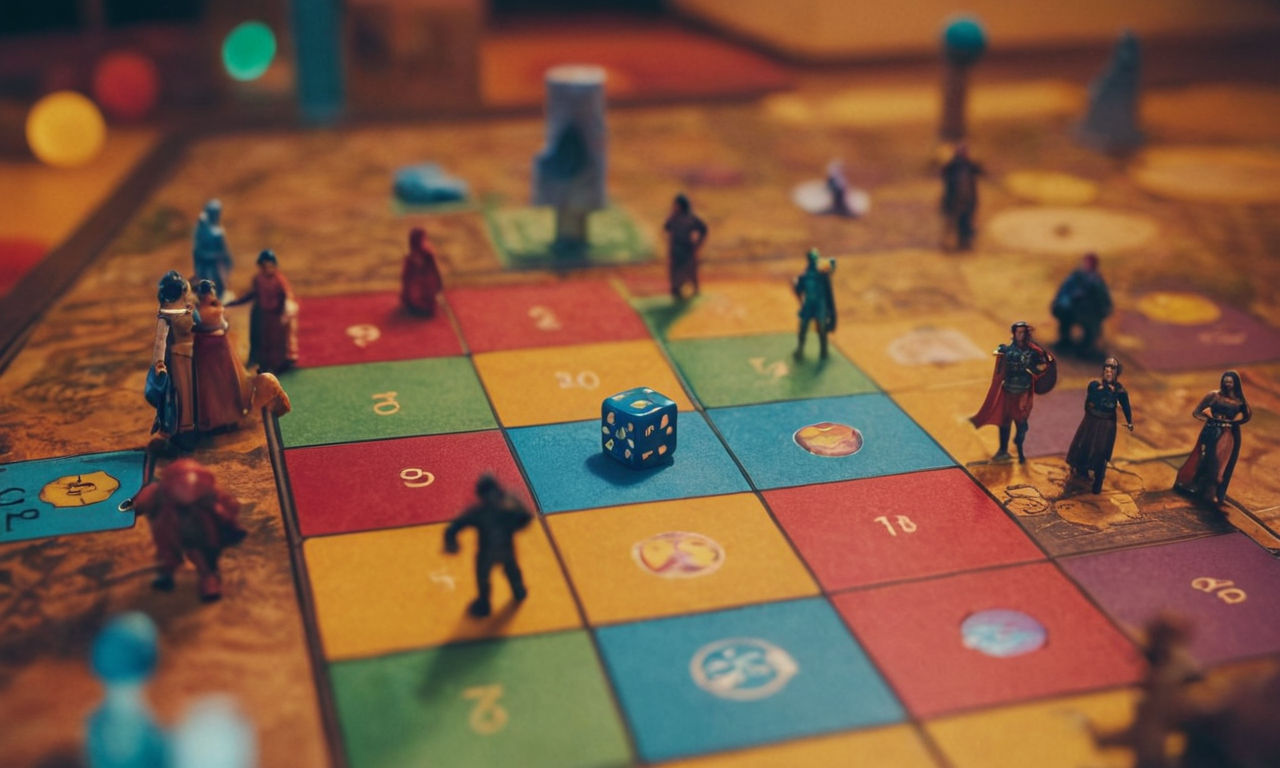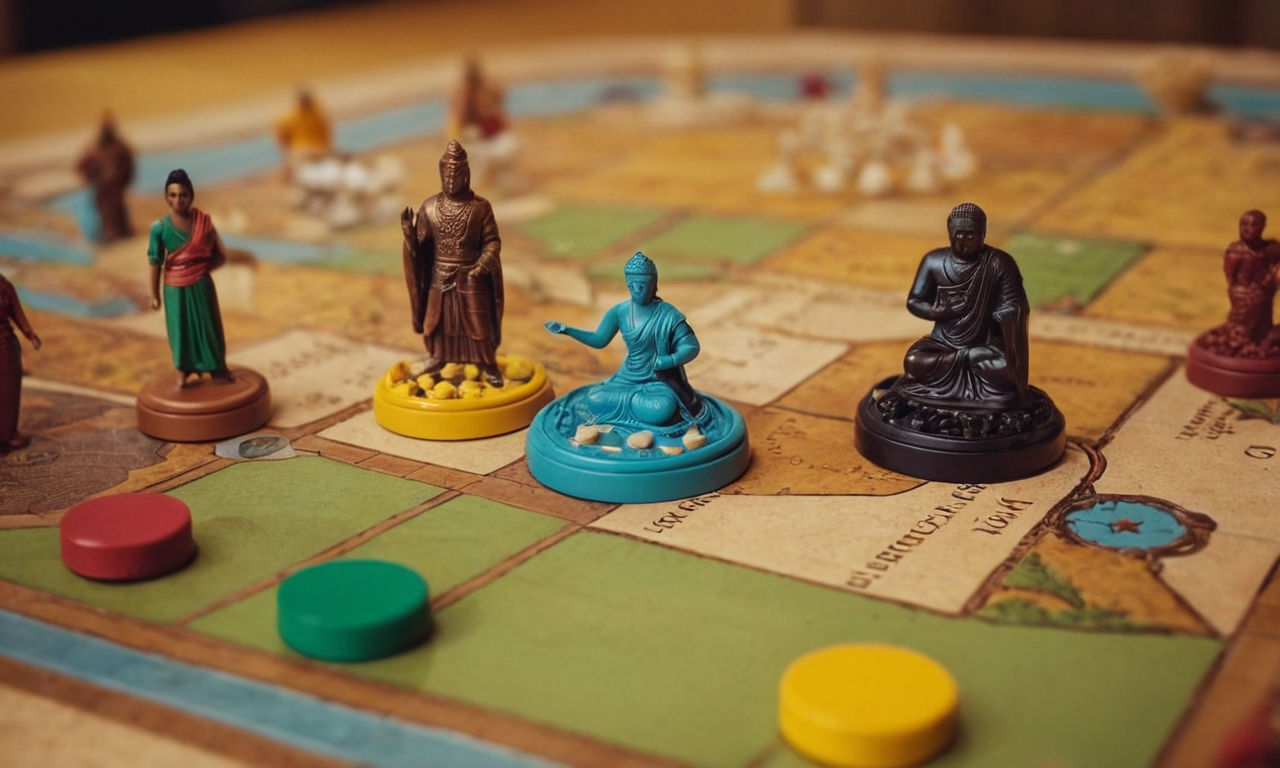Overview
Board gaming safety and inclusiveness play a pivotal role in creating welcoming environments that cater to all players. In the realm of board games, representation and diversity are crucial for fostering inclusive gaming experiences. By delving into diverse characters and themes, games can transcend barriers, promote inclusivity, and enhance gameplay for a wide range of players.
Understanding Diversity in Board Games
Diversity in board games encompasses various aspects, including representation of different cultures, genders, abilities, and backgrounds. Embracing diversity not only reflects the real world but also opens up opportunities for players to engage with narratives and experiences beyond their own. Some benefits of inclusive gaming practices include:
Increased Engagement: When players see themselves represented in games, they are more likely to feel connected and engaged with the gameplay.
Cultural Appreciation: Diverse board games provide opportunities for players to learn about and appreciate different cultures and perspectives.
Broader Appeal: Games that cater to a diverse audience have a broader appeal, attracting a wider player base and fostering a sense of community.
Representing Diversity in Game Design
Game designers hold the key to promoting diversity through thoughtful and intentional game design. By incorporating diverse characters, storylines, and themes, designers can create immersive experiences that resonate with players from various backgrounds. The impact of representation in gaming goes beyond aesthetics and storytelling; it influences players in profound ways:
Empowerment: Players from underrepresented groups can feel empowered and validated when they see characters in games that they can relate to.
Education: Games with diverse themes can educate players about different cultures, histories, and experiences, fostering empathy and understanding.
Inclusivity: Representing diversity in game design sends a message of inclusivity, welcoming players of all backgrounds to participate and enjoy the gaming experience.

In conclusion, the integration of diverse characters and themes in board gaming not only enriches gameplay experiences but also contributes to building a more inclusive and welcoming gaming community.
Promoting Inclusivity in the Gaming Community
Creating an inclusive gaming environment is essential for ensuring all players feel welcomed and valued. By implementing various strategies, the gaming community can foster inclusiveness and diversity:
Diverse Representation: Include diverse characters, themes, and narratives in games to reflect a wide range of experiences and identities. This representation can help players feel seen and represented, contributing to a more inclusive environment.
Safe Spaces: Establish codes of conduct and community guidelines that promote respect and understanding among players. Encouraging open communication and addressing any instances of discrimination or exclusion can make gaming spaces safer and more inclusive.
Educational Initiatives: Provide resources and educational materials that raise awareness about the importance of diversity and inclusivity in gaming. Workshops, panels, and discussions can help educate the community and promote positive change.
The gaming community plays a vital role in fostering inclusiveness through active participation, advocacy, and the promotion of diversity in all aspects of the gaming industry.
Enhancing Gameplay Experiences
Diversity and inclusivity in board games can significantly enhance gameplay experiences for all players. By incorporating these principles, game designers can create more engaging and relatable gaming experiences:
Increased Engagement: Players are more likely to connect with games that feature diverse characters and themes. This connection can lead to increased engagement, enjoyment, and overall satisfaction with the gaming experience.
Enriched Storylines: Diverse narratives and experiences in games can create more compelling storylines that resonate with a broader audience. Players of all backgrounds can find aspects of the game that they identify with, enhancing their immersion in the gaming world.
Broader Perspectives: Exposure to diverse perspectives and experiences through gaming can broaden players' horizons and foster empathy and understanding. This can lead to more enriching social interactions within the gaming community.

Successful implementation of diversity and inclusivity in board games can lead to more dynamic and meaningful gameplay experiences that cater to a wider audience.
Challenges and Solutions
Promoting diversity in board gaming comes with its own set of challenges, but there are solutions and best practices that can help overcome these barriers:
Limited Representation: One common challenge is the lack of diverse representation in the gaming industry. To address this, game designers and publishers can actively seek out diverse voices and collaborate with creators from underrepresented communities.
Unconscious Bias: Addressing unconscious bias in game design and marketing can help ensure that games are inclusive and accessible to all. Training programs and diversity audits can help identify and mitigate biases in the gaming industry.
Community Engagement: Building a supportive and inclusive gaming community requires ongoing effort and collaboration. Implementing community feedback mechanisms, organizing diversity-focused events, and promoting inclusive language and behavior can help create a more welcoming environment.
By addressing these challenges head-on and proactively implementing solutions, the gaming community can continue to promote inclusiveness and diversity in board gaming, creating positive and enriching experiences for all players.
Importance of Representation and Diversity in Board Gaming
In the realm of board gaming, the concept of board gaming safety and inclusiveness plays a pivotal role in shaping the experiences of players. The incorporation of diverse characters and themes in games goes beyond mere aesthetics; it fosters inclusivity and creates a welcoming environment for all participants.
Creating Inclusive Game Environments

Enhanced Gameplay Experiences: By introducing varied characters and storylines, board games become more relatable and engaging for players from different backgrounds. This inclusivity enriches the gaming experience and encourages a broader audience to participate.
Encouraging Creativity and Innovation: Diverse representations in board games inspire game developers to think outside the box, leading to the creation of unique and groundbreaking game mechanics. When designers embrace diverse narratives, they push the boundaries of creativity in game design.
Promoting Inclusive Gaming Practices
Breaking Stereotypes: Representation in games can challenge stereotypes and misconceptions, promoting a more accurate reflection of society. Players interacting with diverse characters gain a better understanding of various cultures, identities, and experiences.
Building Empathy and Understanding: Inclusive game environments cultivate empathy among players by allowing them to step into the shoes of characters different from themselves. This fosters a deeper appreciation for diversity and promotes understanding across diverse communities.
The Community's Role in Championing Inclusiveness
In the board gaming community, advocating for diversity in board games and representation in gaming is essential in paving the way for a more inclusive and accepting environment. Players, designers, and stakeholders all play a crucial role in shaping the narrative of board gaming.
Fostering a Welcoming Community
Inclusive Events and Initiatives: Community-driven efforts such as inclusive game nights, diversity-focused panels, and workshops promote a culture of inclusivity within the gaming community. These events provide a platform for open discussions on diversity and representation in gaming.
Supporting Diverse Voices: Encouraging and amplifying diverse voices in the gaming industry can lead to the creation of more inclusive games. By supporting designers from various backgrounds, the community contributes to a more diverse range of games being developed.
Driving Positive Change
Educating and Raising Awareness: Community engagement and education on the importance of representation in board gaming can drive meaningful change. By raising awareness about the impact of diverse narratives, players can advocate for more inclusive game designs and practices.
Celebrating Diversity: Acknowledging and celebrating diversity within the gaming community strengthens bonds and fosters a sense of belonging for all participants. Embracing diverse perspectives enriches the gaming experience and creates a more vibrant and inclusive community overall.
Conclusion
In conclusion, the significance of representation and diversity in board gaming cannot be overstated. By embracing inclusive game design practices and promoting diversity within the gaming community, we create a space that is welcoming, engaging, and enriching for all players. The benefits of inclusivity extend beyond gameplay, shaping a community that celebrates differences and thrives on diverse perspectives. It is through these collective efforts that we enhance the gaming experience for everyone involved.



